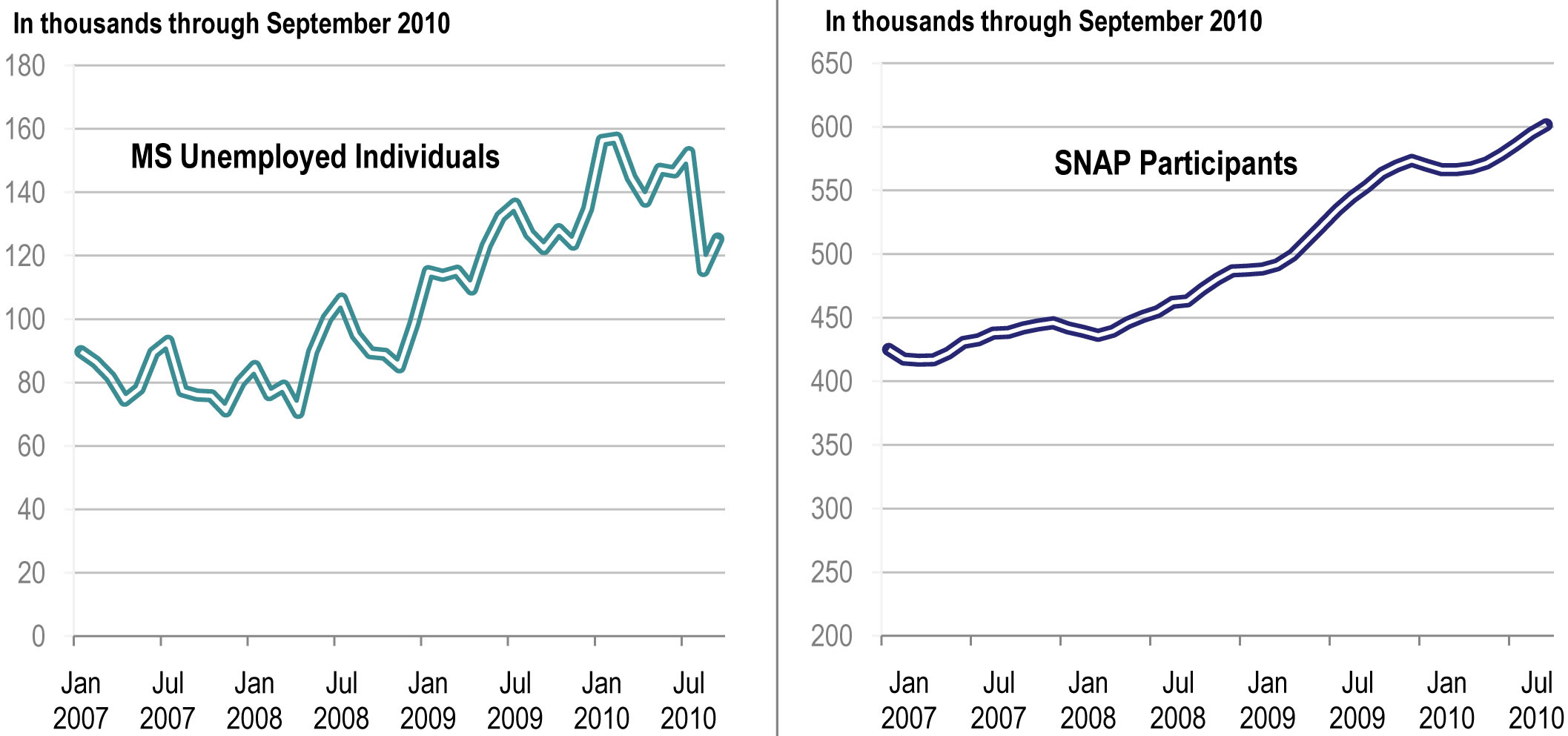Supplemental Nutrition Assistance Program (SNAP) Helps Families Make Ends Meet in Current Recession
November 24th, 2010
Programs that ensure low-income, working families have adequate resources for food have become more important as unemployment and poverty rise during the current recession. In Mississippi, in September 2010, over 125,000 individuals were unemployed and seeking work. Hundreds of thousands more have had to take part-time work, had their hours cut, or are in jobs that pay wages inadequate to support their families. All of these families may be struggling to make ends meet and in need of additional support.
SNAP, formerly the Food Stamp program, provides nutrition assistance, so adults experiencing periods of economic insecurity can provide adequate meals for their families. Without this support, many families would have their monthly budget for food reduced or would have to sacrifice their spending on other needs like rent, gas, utilities, and medical care.
With thousands of families experiencing periods of unemployment or reduced hours, SNAP has responded to the needs of Mississippi’s families. The figure below illustrates the rise in SNAP caseloads since January 2007 and the rise in unemployment over the same time period. In fact, the percent change in the unemployed and the percent change in SNAP caseloads since January 2007 has been relatively similar to the number of unemployed individuals rising 39.6 percent (89,726 to 125,311) and the number of SNAP cases rising 41.5 percent (425,009 to 601,486).
Click to enlarge
Mississippi Unemployed Individuals and SNAP Participants, 20017-2010
Although the percent change is similar, SNAP caseloads have clearly risen dramatically in response to a growing need over the last three years recession. SNAP caseloads in Mississippi surpassed 600,000 in September 2010, an all-time high for monthly participants since tracking began†. The rise in SNAP caseloads underscores the widespread economic strain being felt by households across Mississippi.
The economic downturn has generated increased demand for many programs that help families make ends meet. For the more than 600,000 participants in Mississippi, SNAP benefits provide one life line for weathering the loss of income that comes with job loss.
See our fact sheet: For additional information on Mississippi’s rate of food insecurity, the economic impact on Mississippi’s local economies, and the temporary reforms to SNAP that have supported thousands of Mississippi low-income households see our latest fact sheet.
Sources:
USDA Economic Research Service; Bureau of Labor Statistics, Local Area Unemployment Statistics
Author:
Sarah Welker, Policy Analyst
†Census Bureau Small Area Income and Poverty Estimates; Mississippi Department of Human Services






